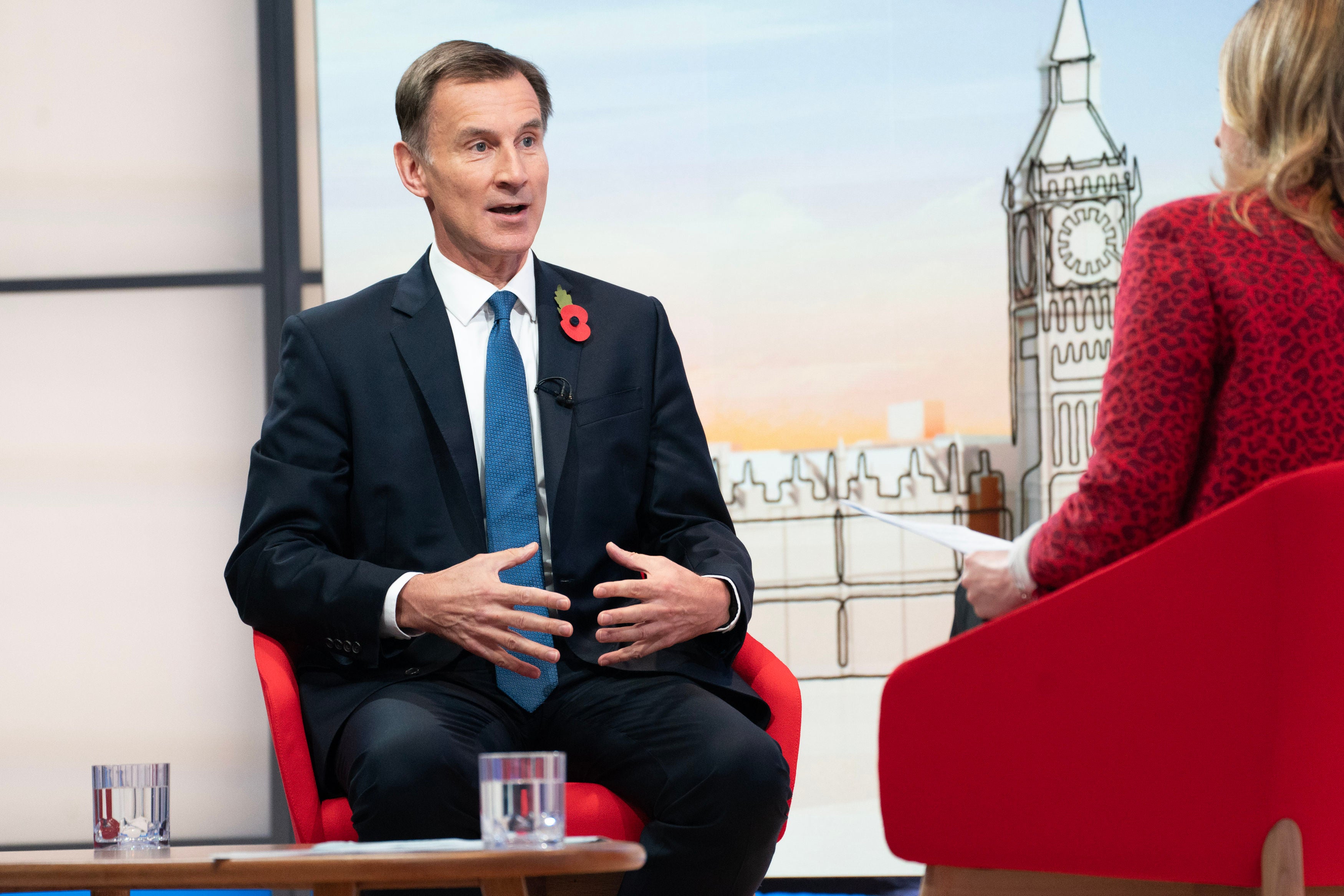
The rate of UK unemployment rose to 3.6 per cent in the three months to September, up from 3.5 per cent in the previous three months, the Office for National Statistics said.
Darren Morgan, director of labour and economic statistics at the Office for National Statistics (ONS), said half a million working days in August and September were lost to strikes in addition to older people leaving the workforce.
The Office for National Statistics also published data on wages showing between July and September wages fell in real terms by 2.6 per cent for total pay when adjusted for inflation, and by 2.7 per cent on the year for regular pay.
“The proportion of people neither working nor looking for work has risen again,” Mr Morgan said.
“Since the onset of the pandemic, this shift has largely been caused by older workers leaving the labour market altogether, but in the most recent quarter, the main contribution has actually come from younger groups.
“August and September saw well over half a million working days lost to strikes, the highest two-month total in more than a decade, with the vast majority coming from the transport and communications sectors.”
Mr Morgan added that as real earnings begin to fall, most strikes are on disputes over pay.
He added: “Job vacancies continue to fall back from their recent peak, with increasing numbers of employers now telling us that economic pressures are a factor in their decision to hold back on recruitment.
“The biggest driver behind the fall came from hospitality, followed by retailing and wholesaling.”

It comes as the Bank of England warned the UK was falling into a deep recession amid rising inflation, food costs and energy bills.
Jeremy Hunt, the chancellor, said: “Unemployment remains near record lows – providing security to families and testament to the resilience of the British economy even in the face of severe global challenges.
“But I appreciate that people’s hard-earned money isn’t going as far as it should. Putin’s illegal war has driven up inflation - a hidden and insidious tax that is eating into paychecks and savings.

“Tackling inflation is my absolute priority and that guides the difficult decisions on tax and spending we will make on Thursday. Restoring stability and getting debt falling is our only option to reduce inflation and limit interest rate rises.”
Rachel Reeves, Labour's shadow chancellor, said today's wage figures “press home the knock-on impact of 12 years of Tory economic mistakes and low growth.”
She said: “Real wages have fallen again, thousands of over 50s have left the labour market and a record number of people are out of work because they’re stuck on NHS waiting lists or they’re not getting proper employment support.”
Sarah Olney, the Liberal Democrats' Treasury spokeswoman, said the “government's economic mismanagement is leaving pay packets stretched further than ever before just as bills spiral out of control” as she responded to today's wage figures.

Lauren Thomas, Glassdoor’s UK Economist said with news of tech layoffs in large companies including Meta, Twitter and Amazon, employees are growing anxious at the prospect of a recession and hiring freezes.
Ms Thomas added: “Unlike the Great Recession, the current shortage of workers is much more acute and even a potential recession would be unlikely to result in the same peak of unemployment as we saw then. There are reasons to be hopeful – vacancies are likely to remain higher and both redundancies and unemployment are lower than before the pandemic.”
Ben Harrison, director of the think tank Work Foundation at Lancaster University, said there is a concerning number of people who have stopped working due to ill health since the pandemic.
He added that the chancellor should uprate social security in line with inflation to support job seekers.
“While vacancies are high at the moment, the Bank of England is forecasting unemployment will rise to 4.9 per cent by end of 2024 and it is likely jobs will soon become harder to find.
“This could lead to a downward pressure on wages and conditions as the recession bites, and result in an increase in insecure work.”







